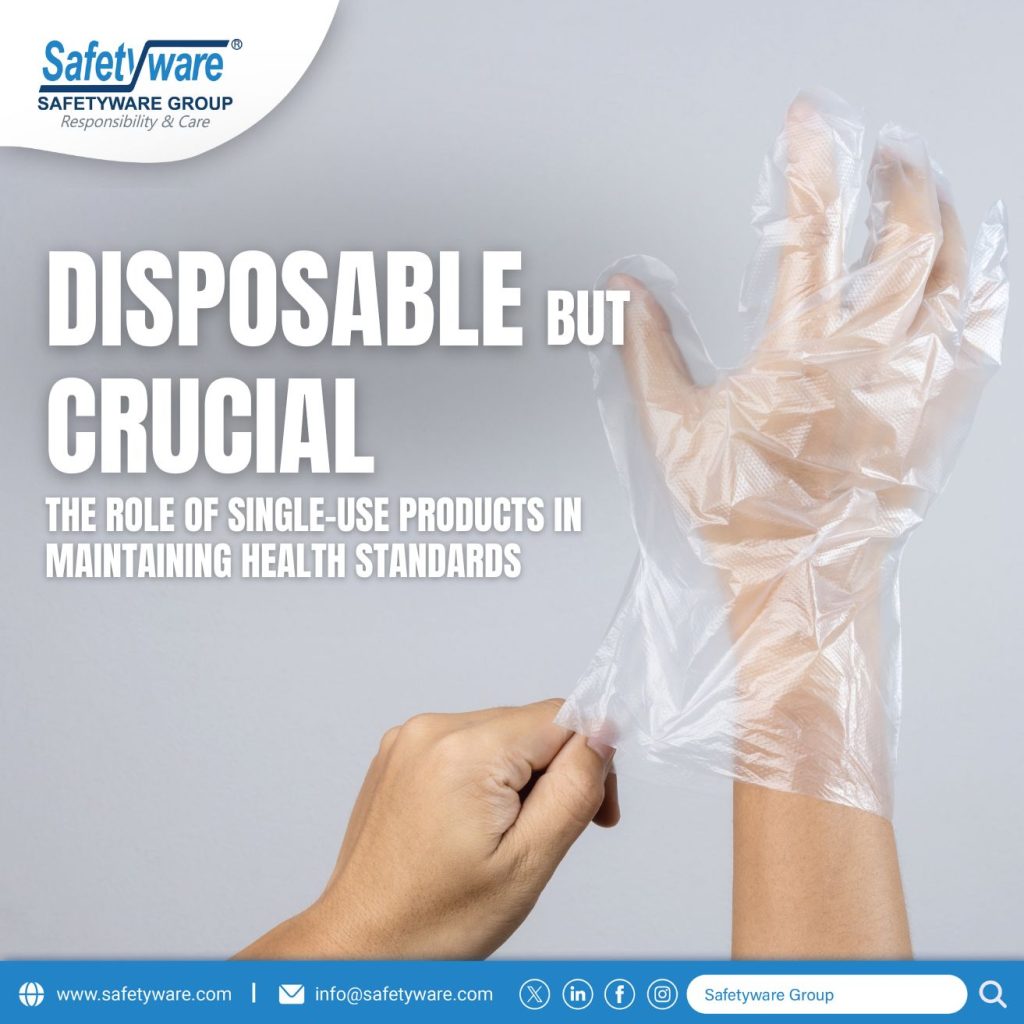In the realm of Environmental, Health, and Safety (EHS), the significance of single-use products cannot be overstated. From disposable gloves and masks to wipes and protective clothing, these items play a pivotal role in safeguarding the well-being of individuals and upholding health standards in various industries. In this blog post, we will explore the essential role of single-use products in maintaining health standards, promoting hygiene, and mitigating risks in the workplace.

The Importance of Single-Use Products in EHS
Single-use products are designed for one-time use and disposal, offering a convenient and hygienic solution for a wide range of applications in EHS practices. These products serve as a crucial line of defense against contamination, infection, and exposure to hazardous substances, thereby protecting workers, the environment, and the community. Here are some key points highlighting the significance of single-use products in EHS:
- Personal Protective Equipment (PPE): Single-use products such as disposable gloves, masks, coveralls, and shoe covers are essential components of PPE, providing a barrier against biological, chemical, and physical hazards. Proper use of PPE helps prevent injuries, illnesses, and contamination in the workplace.
- Infection Control: Single-use products like disinfectant wipes, hand sanitizers, and disposable tissues are instrumental in maintaining cleanliness, preventing the spread of infections, and promoting good hygiene practices. These products are particularly vital in healthcare settings, food service establishments, and public facilities.
- Spill Response and Cleanup: Disposable absorbent pads, spill kits, and containment products are indispensable for managing spills of hazardous materials, chemicals, and oils. These products facilitate prompt containment, absorption, and cleanup of spills to prevent environmental contamination and ensure worker safety.
- Waste Management: Single-use products contribute to proper waste management practices by enabling the safe disposal of contaminated items, biohazardous materials, and infectious waste. By using disposable products, organizations can reduce the risk of cross-contamination and maintain a clean and sanitary environment.
Balancing Sustainability and Safety
While single-use products offer convenience and hygiene benefits, there is a growing emphasis on balancing the use of disposable items with sustainability considerations. Organizations are increasingly exploring eco-friendly alternatives, biodegradable materials, and recycling initiatives to minimize the environmental impact of single-use products. By adopting sustainable practices and responsible disposal methods, businesses can uphold health standards while reducing their carbon footprint.
Conclusion: Upholding Health Standards with Single-Use Products
In conclusion, single-use products play a vital role in maintaining health standards, promoting safety, and mitigating risks in EHS practices. From PPE and infection control to spill response and waste management, these disposable items are indispensable tools for protecting individuals, preserving the environment, and ensuring compliance with health and safety regulations. By recognizing the importance of single-use products and embracing sustainable practices, organizations can create a safer, healthier, and more environmentally conscious workplace for all.
